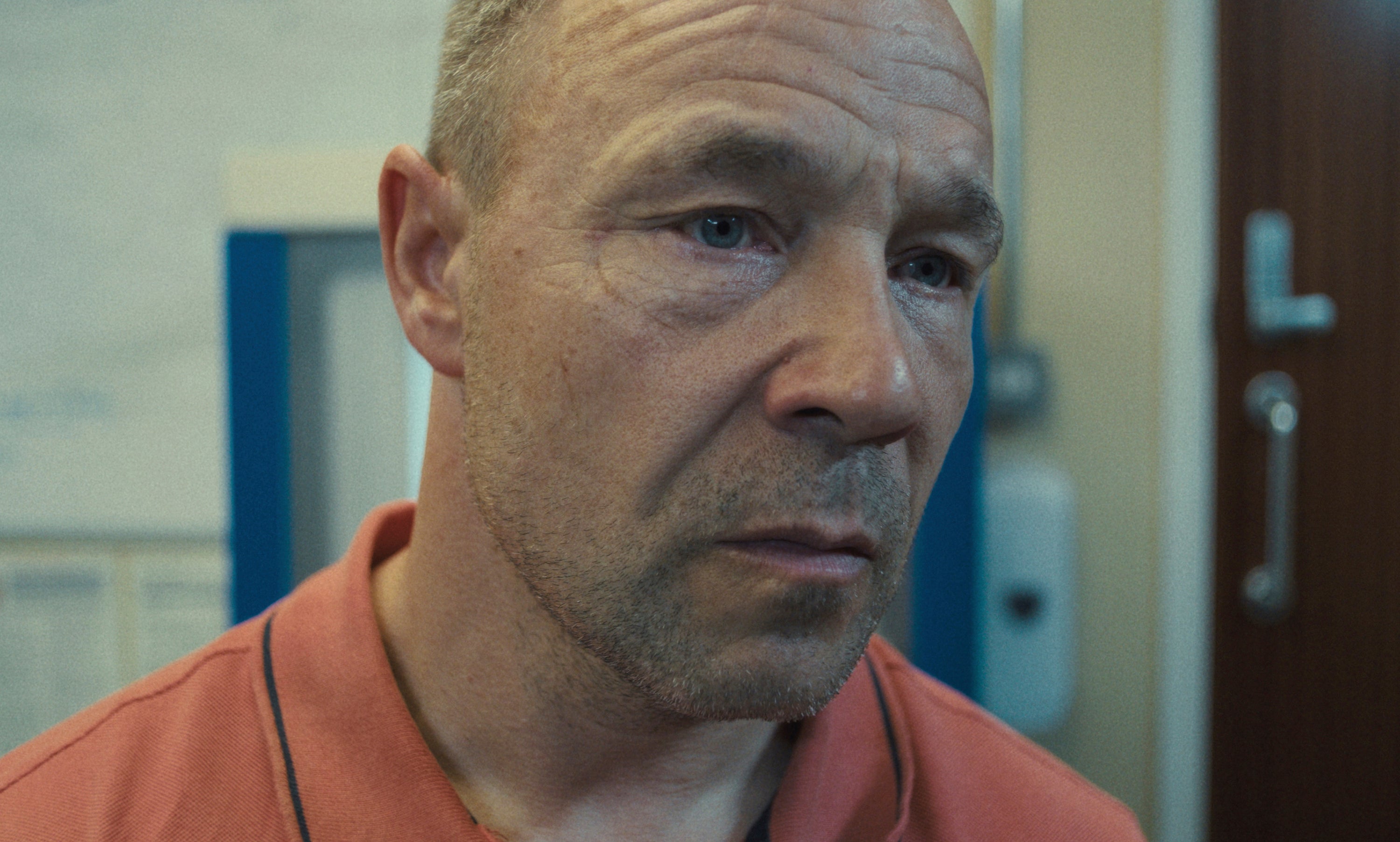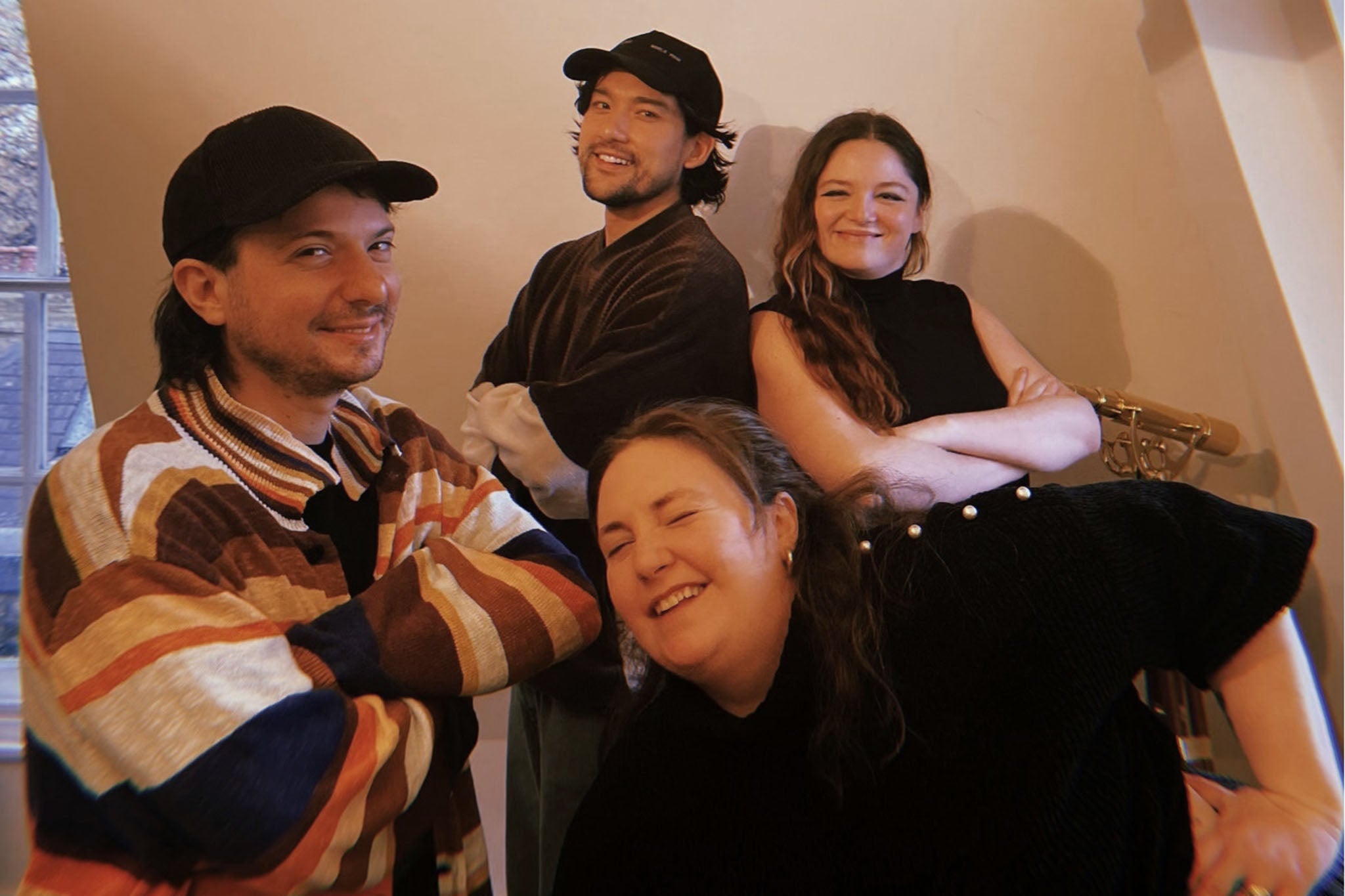If you’re Gen Z or younger, you probably can’t remember the last time the UK was cool. It was before your time, I’m afraid – a Nineties heyday embodied by Britpop bands such as Oasis and Blur, Richard Curtis romcoms, YBAs (Young British Artists) headed up by Damien Hirst and his provocative animals in formaldehyde, and Tony Blair’s Labour Party finally booting the Tories out of power in 1997 after an 18-year stronghold.
It marked a period of genuine optimism – a feeling epitomised by sexy smackhead Mark Renton (Ewan McGregor) “choosing life” at the end of Danny Boyle’s Nineties masterpiece, Trainspotting – when British fashion, music and culture were the envy of all. A time when the country felt progressive, thriving and relevant. A time when, in fact, one might feel the tiniest bit justified in being “proud to be British”. Ginger Spice was even able to wear a union jack mini-dress to the 1997 Brit Awards without the merest hint that she was making some kind of anti-immigration political statement. That same year, Katrina and the Waves won the Eurovision Song Contest on behalf of the United Kingdom with their uplifting ballad “Love Shine a Light”.
Since that golden era of Cool Britannia petered out, we’ve been sorely lacking in the trendy department. The Tories wrested power back from Labour again in 2010, introduced the chokehold of austerity, and clung on for the next 14 years. The flame of excitement prompted by the success of the 2012 London Olympics was comprehensively doused by the damp squib that was the Brexit referendum – and ensuing economic downturn – in 2016.
Our street cred was further dented by dodgy Covid contracts and a succession of cringe-making leaders who ran the gamut from robotic to corrupt. Theresa May, Boris Johnson, Liz Truss, Rishi Sunak: it’s practically a four-way tie in the “which of our prime ministers was the most embarrassing” race to the bottom. No, for a nigh-on a quarter of a century, “cool” was not a word one could feasibly use to describe the British Isles – not without a knowing flicker of irony, at any rate.
But now, all of a sudden, we might just be on the cusp of Cool Britannia Mark II. Now, for the first time in decades, might it be – whisper it – cool to be British again?
Of course, the country has long continued to hold a certain charm for anglophiles the world over, but it was previously always our past, rather than our present, that captivated foreigners. Jane Austen adaptations of varying quality may have flown off the shelves; Downton Abbey may have garnered such global popularity that endless series continued to be made, regardless of the increasing “jump the shark” implausibility that the Crawley family were barely ageing through the decades. But modern Britain, with its deflated economy and mortifying politicians, its littering and its rioting and its binge drinking, was an understandably unappealing prospect for all but the country’s staunchest defenders. People wanted the Britain of bonnets and smouldering heroes in the mould of Pride and Prejudice’s Mr Darcy or a topless Aidan Turner as Poldark. They did not want the Britain of The Only Way Is Essex.
Yet it seems the tide might finally have turned. The signs that the UK’s cultural cachet was about to experience an unexpected surge were already there, of course. No, Keir Starmer’s thrashing of the Tories last year was far from the jubilant landslide of Labour in the late Nineties, but it at least represented some kind of hope after years in exile for those on the Left. The official trend and soundtrack for that summer – Brat summer – was orchestrated by unabashedly hip British musician Charli XCX, whose album emboldened a generation of young people to sack off curating a perfect Insta grid and stay out raving all night in yesterday’s makeup. Even Democratic presidential candidate Kamala Harris got in on the action after Charli declared “kamala IS brat” on social media.

Now, 2025 seems to be the year when everything has coalesced – and people are once again loving the UK for her grittiness, rather than her prettiness. The Gallagher brothers, pivotal in Cool Britannia’s previous iteration, have kick-started a frenzy of Britpop nostalgia single-handed with their reunion tour. Guy Ritchie’s latest gangster series, MobLand, with its hard-as-nails London crime scene juxtaposed by picturesque Cotswolds manor houses, was an instant success for Paramount. Adolescence, a dark mini-series set in Yorkshire about a 13-year-old boy who murders a classmate after becoming radicalised online, is Netflix’s most-watched show of the year and its second most-watched English-language series of all time. The show’s standout performances earned Emmy nominations for Stephen Graham, Erin Doherty and Ashley Walters, as well as 15-year-old Owen Cooper, who made history by becoming the youngest ever nominee in the limited series supporting actor category.
And then there are the celebrity endorsements that keep rolling in. “Everything here is just better,” comedian and talk show host Ellen DeGeneres recently said of the UK after moving here with wife Portia de Rossi following Donald Trump’s re-election. “The way animals are treated, people are polite. I just love it here.”
American singer Olivia Rodrigo also endeared herself to fans by proclaiming “I love England so much,” during her set at this year’s Glastonbury Festival, before succinctly summing up the best things our humble nation has to offer. “I love how nobody judges you for having a pint at noon,” she said dreamily. “I love English sweets, all the sweets from M&S, Colin the Caterpillar specifically. I have had three sticky toffee puddings since coming to Glastonbury. And, as luck would have it, I love English boys” (this last point a reference to her current squeeze, Enola Holmes actor Louis Partridge).
Writer, actor and director Lena Dunham, who emigrated to the UK five years ago and is married to British musician Luis Felber, wrote this of swapping Manhattan for London in The New Yorker: “The city, which is large enough to contain all five New York boroughs twice, had a spaciousness I could not get over, streets so wide that the buildings seemed to be stepping aside for me to pass … Here, I moved with ease, whether walking on Hampstead Heath or sliding into a black cab, greeted by a gruff ‘Oy! Where you ’eaded?’”

Her move (and husband) inspired Dunham’s new Netflix show, Too Much, in which New Yorker Jessica (Megan Stalter) relocates to London after a traumatic breakup. The show is nothing if not an ode to the real Great Britain in all its complex, drizzle-soaked glory – Jessica may expect to find country estates and good breeding but has to settle for council estates and incomprehensible slang (“Did you get a b*****king?”). Yet as she slowly falls in love with romantic lead Felix (Will Sharpe), you get the sense that she is falling just as deeply for Britain’s rough and ready quirks, bizarre class rules and unnecessarily prolific use of the c-word.
Watching the series, I too felt a little flicker of something – a kind of nostalgia for the way I used to feel, all those years ago, when my walls were plastered in posters of the Spice Girls and my sister and I would quote Four Weddings and a Funeral at each other ad nauseum. Could it possibly be… patriotism? Pride that our eccentric, much-maligned island is having the kind of cultural renaissance I’d assumed was completely outside the realms of possibility?

It harked back to the feeling stoked by the famous Vanity Fair cover in March 1997, featuring then-It couple – or should I say Brit couple – Liam Gallagher and Patsy Kensit, wrapped in union jack bedding above the caption “London Swings Again!” What would the 2025 cover look like, I wonder? Stephen Graham and Charli XCX sharing a rollie? Jonathan Bailey proffering a plate of Jaffa Cakes to Millie Bobby Brown?
Regardless, I’m going to suggest we all embrace our collective moment in the sun, belt out the words to “Wonderwall” without shame, and enjoy the fact that we can briefly wear a union jack mini-dress once more – without it being seen as tantamount to an endorsement for the Reform party.


